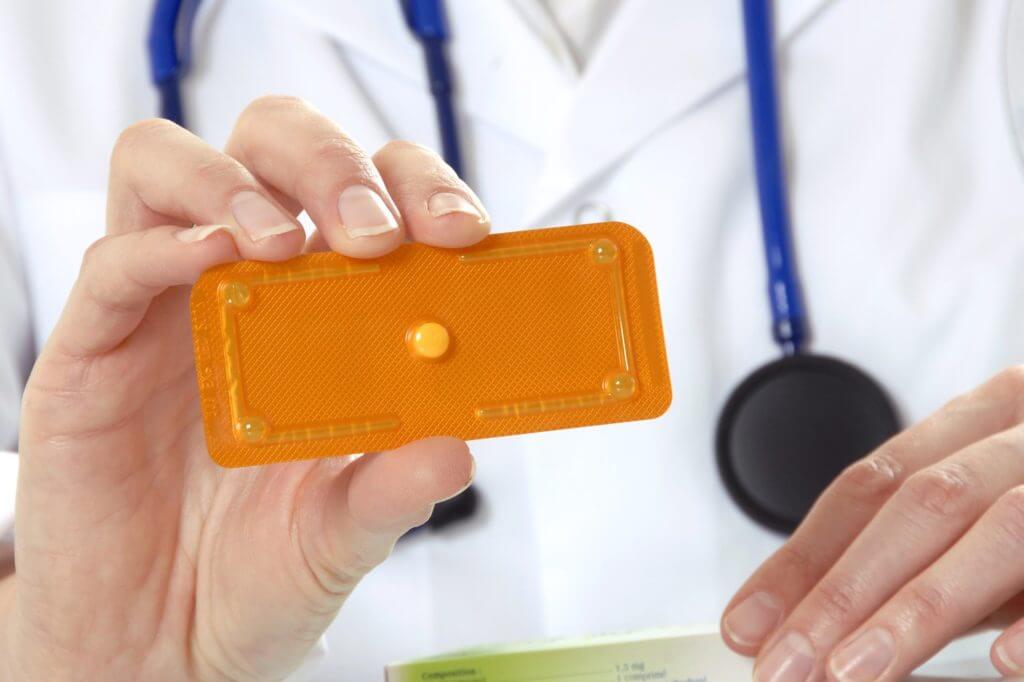What are the advantages and disadvantages of an IUD?

Intrauterine devices (also known as IUDs) are products for preventing unwanted pregnancy in women, a great alternative to traditional pills and condoms most people are used to. This device gained its popularity alongside contraceptive implants, women’s condoms, copper IUDs, and other products that are more effective and reliable than condoms.
For some people, the decision to start using IUD may be complicated because, as with everything unknown to us, there are plenty of suspicions and doubts. Today, we are here to tell you about this form of birth control more, explain all important details, and answer the most popular questions newcomers usually have about IUDs. Keep reading to learn more on the topic of contraception!
What are IUD forms of birth control?
Let’s start with some visual characteristics. IUD (both hormonal and copper) are T-shaped devices that are inserted inside the uterus by a medical specialist in a clinic. Depending on the type, it may release copper or progesterone hormone in the body. Hormonal IUD helps make mucus inside the uterus thicker and doesn’t let sperm reach the egg; it also stops ovulation and makes it impossible for women to get pregnant. In the case of the copper IUD, it simply creates an inhospitable environment for the sperm and stops them without any chance of getting into the egg.
These devices stay active for 5 to 10 years (depending on the brand, health peculiarities of the client, and other important factors) and can be removed only by a doctor. It is not recommended for patients to try to move the IUD because, if placed incorrectly, it may cause great discomfort and even painful sensations.
The main benefit of some IUDs is that those can be used as emergency contraception (under circumstances that it is inserted two days after the sexual intercourse). The most important thing is to go to the clinic as fast as possible and have an intrauterine device placed by a doctor or nurse. Keep in mind that women can experience heavier periods, prolonged menstrual bleeding, or no menstruation at all after the insertion. Some patients should also deal with painful sensations after the insertion; however, there are certain painkillers that can be prescribed for such situations to eliminate unpleasant feelings.
Intrauterine devices IUDs. Main advantages and disadvantages
As with any type of serious decision a person makes, a list of pros and cons is a logical step that will be very helpful to those who doubt whether they made the right choice. So, now we would like to make the lives of our readers easier and present the list made by professionals in the women’s health medical sphere. Read, analyze, and pick the best for yourself!
Benefits
- Effective at preventing pregnancy. If inserted by an experienced medical professional who knows what they do, IUDs are effective 99% of the time;
- An IUD is convenient. When it is placed in the uterus, and after some time a person requires to get used to it, this device causes zero discomforts and allows come back to daily activities and routine pretty fast;
- It doesn’t affect fertility. After removal, a woman can try getting pregnant right away. Of course, some time may be required, but it’s normal and doesn’t usually take long;
- Sometimes women use an IUD to improve their periods. Of course, it should be prescribed by a gynecologist after a careful medical examination; however, it still remains one of the best options to deal with irregular menstruation;
- Copper IUD (unlike hormonal IUDs) can be used as emergency contraception. Specialists claim that, if inserted within 120 hours after sex, copper IUDs can be very effective in preventing unwanted pregnancy;
- You may choose the variant which is the best for your health condition. Women who cannot use hormonal products can choose copper ones as an alternative. On the other hand, hormonal IUDs are very effective for those with irregular and heavy bleedings.
Disadvantages
- Unexpected changes in the menstrual cycle. IUDs can change patterns of vaginal bleeding, as well as make menstruation heavier, lighter, or stop them at all. They can also become more painful or, on the contrary, less painful, depending on the body peculiarities;
- While effective in preventing pregnancy, IUDs still cannot protect against STIs. That is why if you don’t have a permanent sexual partner, you should still use a condom for better sexual health and no trouble in the future;
- If you catch the infection when an IUD is inserted, it can develop into a pelvic disease if not treated on time. That is why regular examinations are important to protect your health;
- Many people have to remove an IUD because of the unpleasant sensations it causes. This symptom is not common; however, some women just cannot get used to the device being constantly in their uterus.
Are there any risks with IUDs?
IUDs may cause certain risks that people should be aware of before deciding to insert the device. Of course, it is strictly individual and may not even appear in some patients; however, it is always better to know and be prepared. So, the following complications are possible because of intrauterine birth control:
- Pelvic infections. It is most likely to appear during the first 20 days after placing the device inside or if a person already had any type of infection present;
- Thrush. The chances of getting it are not too high, but women should still be careful (especially if they tend to suffer from this issue);
- Rejection. This one almost never happens, but it is still better to be cautious. The womb can reject the product and cause its displacement, so check whether everything is okay during the first few weeks after administration in order to make sure there are no problems with the placement;
- The womb damage. The IUD can create a hole in the womb if placed incorrectly. It is painful; however, sometimes there are no symptoms at all, so a regular check out is extremely important for your health and safety;
- Ectopic pregnancy. If placed by an inexperienced doctor or nurse incorrectly, pregnancy is still possible, so be careful with your choice of doctor.
To sum up
IUDs are among the most popular options for birth control nowadays. It is effective, safe, and is approved by many medical experts out there. As with any type of medical device, a careful health examination is required to know for sure that an IUD will be suitable for you, as well as that it won’t cause any serious health complications. Make your decision and choose the best variant for you. Take care!






